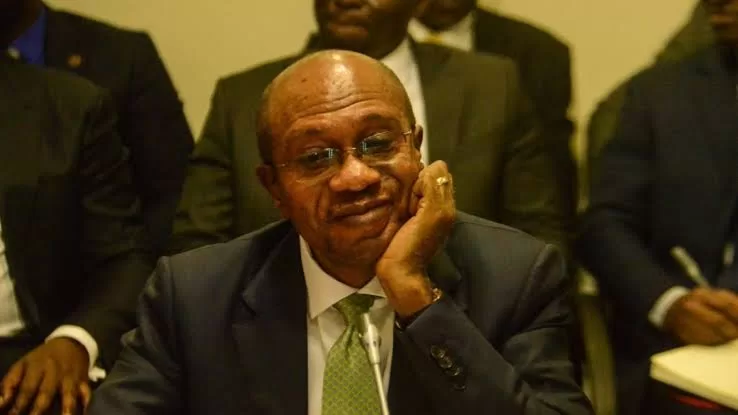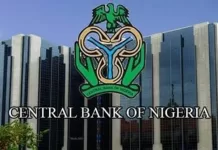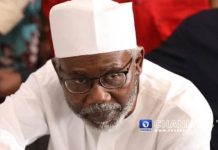If anyone had told Godwin Emefiele that he would be arrested on June 9, surely, he would have called it bluff.
Few hours before his arrest, Emefiele was the Governor of the Central Bank of Nigeria (CBN), commanding all the powers and respect accorded to that office.

Indeed, one cannot tell what tomorrow brings for us all and as such, we must be mindful of what we do today.
If truly the Naira redesign policy championed by Godwin Emefiele during the 2023 elections was targeted at President Bola Tinubu as speculated, then this CBN Governor is in for a long ride.
But you see, there are some critical issues to consider in order to understand the main reason for Emefiele’s tragedy.
In The Beginning
After the oil boom of early 2010 that supported strong growth in the Nigerian economy, there was an oversupply of oil from the US shale industry that crashed prices in mid-2010 and upset oil producers.
This development altered activities in the international oil market.
It was no longer business as usual and oil-dependent economies like Nigeria were presented with an opportunity for reform.
The kind of reforms that should improve the economy’s resilience to shocks from the oil market.
It was under this context that Godwin Emefiele was appointed as the Governor of the Central Bank of Nigeria (CBN).
Unlike his predecessors Charles Soludo and Sanusi Lamido Sanusi, who both had the legacy of cleaning up the banking industry and making it more resilient after years of military rule and a global financial crisis.
Governor Emefiele (God Of Naira)
Emefiele’s task and legacy were going to be focused on managing Nigeria’s economic transition away from oil dependence.
Godwin Emefiele was presented with an opportunity to make an impact.
Nine years later, he is rated as the most consequential Governor of the Central Bank of Nigeria.
He had the rare privilege of leading the Central Bank for two consecutive terms and he is now in the last year of his 10-year tenure.
However, from evaluation of available facts, one can conclude that Godwin Emefiele will be leaving the Central Bank and the Nigerian economy in a worse shape than he met it.
Power Of Independence
The notion of the independence of the CBN was put to test with the removal of Sanusi Lamido Sanusi in 2014.
The Godwin Emefiele-led CBN never pretended that such statutory independence was necessary to carry out his duties.
The Central Bank, like other institutions such as the Judiciary and the Independent National Electoral Commission (INEC) is protected from external influence and political pressure.
This is because political pressure will create conflicts of interests, compromise its mandate and make it act against public interest.
In the past nine years, the wall separating and protecting the CBN and political interest has been broken, thus exposing the CBN Governor to the tunes of officials in the Presidency and State governors, especially on matters of exchange rate policy, monetary financing and lending.
In fact, the CBN governor admitted that he had no choice but to lend to the States in the face of political pressure in 2016.
The lack of independence was clear in the matters of exchange rate management.
The CBN Governor adopted the President’s preference for an unsustainable rate rather than quick adjustments to restore economic stability.
The Past Nine Years
The past nine years have been the most challenging since the late‘80s with regard to stability of the exchange rate, a mandate that the CBN has been vested with.
Since 2014, the Naira has depreciated by over 15% every year; the worst since the late ‘80s, excluding the 1999 adjustment.
Between 2020 and 2022, the depreciation has been 21.9% annually, the worst of any three year period between 1999-2001.
The CBN’s management of the currency has created room for arbitrage and corruption, with the parallel market premium averaging N65.8/$ over the official rate between 2015 and 2021.
This is much higher than the N5.1/$ premium between 2004 and 2014.
Naira Today
Today, Nigerians do not want to hold unto the Naira for store of value because it only makes them poorer.
With an inflation target of 6-9 percent and a mandate to ensure price stability in the economy, there was no full year that the CBN achieved this target under Godwin Emefiele.
Between June 2014 and April 2023, inflation averaged a distressing 14.1 percent in Nigeria.
The consequence is widespread cost of living crisis for Nigerians as a results of widespread low purchasing power.
The CBN’s aggressive expansion of the money supply has contributed to the persistently high inflation.
Unfortunately, there is no growth to show for it as the economy grew only 1.4 percent between 2015 and 2022, much below the historical rate of 7.0 percent n the preceding decade.
Also Read: Shonubi Takes Over From Emefiele As Acting CBN Governor
All things considered, the most damaging impact of the CBN’s lack of independence can be seen in the most aggressive financing of the government in Nigeria’s history.
Stretch Of Powers
Godwin Emefiele also stretched the limit of his powers as the Central Bank Governor, with far reaching policies that touched almost all segments of the Nigerian economy from agriculture to manufacturing and healthcare.
There was no restraint as the CBN almost assumed the role of commercial banks in directing credit to the economy.
Its intervention programmes, designed poorly and without accountability, cut across the real sector and ran into trillions, even while the financing of government deficits was aggressive.
Many of these loans are yet to be repaid, posing great threat to the overall economy.
With much power, there has been little accompanying accountability at the CBN.
The audited financial statements of the CBN have not been published since 2015, in violation of the provisions of the CBN Act of 2007.
The supervision of AMCON, which was created to clean up bad credit in the banking system, has been shambolic.
There has been no proper accountability to the public on the terms of rescue and the eventual sale of banks by AMCON.
Godwin Emefiele will go down in history as Nigeria’s most powerful CBN Governor, who missed the opportunity for reform but will bequeath a huge mess to his successor in office.
That would be his legacy.
Godwin Emefiele (From Governor To Suspect)
One of the things that people predicted before Bola Tinubu took over as Nigeria’s president is that he will surely remove Godwin Emefiele as CBN’s Governor.
Now, President Tinubu has suspended him, over allegations of financial misconduct.
Emefiele, according to the president has been relieved of his duties temporarily though with immediate effect to allow for proper investigations into the matter.
People had alleged that the new Naira notes printing had issues that the CBN Governor must answer to.
You May Like: Just In: President Tinubu Suspends CBN Governor Emefiele
Shortly after Emefiele was relieved of his duty, he was picked up by operatives of the State Security Service (SSS).
It is not clear if the investigation will be around this failed new Naira project that sent Nigeria’s economy backwards, killing several businesses.
The president had ordered that an investigation be carried out into the financial conduct of the CBN governor’s since resuming at the apex bank.
This dates back to June 2014. Prior to the year that President Muhammadu Buhari became the president of Nigeria.






